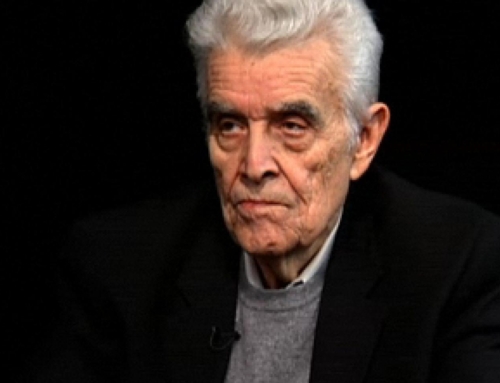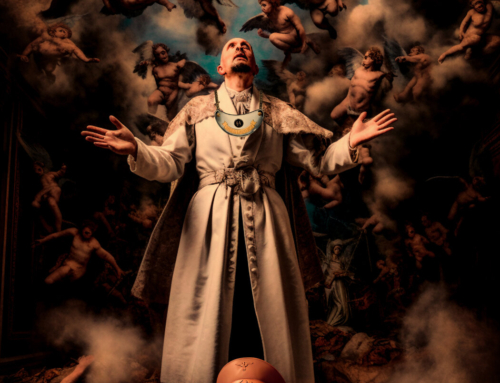In the wake of the suggestion that Pope Francis will approve the ordination of some older married men I’ve been asked yet again to write about the issue of married priests. I am somewhat weary of the subject to be honest, but as one of the few married Catholic priests in the world I guess I ought to weigh in.
But in saying that, I have weighed in over the years quite a lot. This post over at my Patheos blog gives links for a number of articles I wrote about the issue over there. Click away and read all the posts if it suits you! If you use the search facility on this blog it will also give you all the posts I’ve written here plus link you to all the posts on the Patheos archive which is accessible from this blog.
The summary of my opinion is this: practical arguments for or against married priests are a red herring. I can come up with five really good practical reasons for married priests and then turn around and come up with five really good reasons not have married priests.
One of the curious things in this whole debate is that nobody–priests, theologians, writers, bishops, archbishops, decision makers in the Vatican…nobody has ever in the twelve years I’ve been a married Catholic priest ever asked me and my wife how it works, if it works and whether or not we would recommend it. No one has asked us to vet possible future married convert priests and their wives, no one has asked about finances or family or kids or anything.
This seems to me to a classic case of the elephant in the room putting his head in the sand.
I could write a long blog post about those really good arguments in favor and those really good arguments against, but I’ve said most of that in the various posts I’ve written on the subject over the years.
What I haven’t written much about but which I have been giving a fair bit of thought recently is the argument against married priests which was first articulated by St Paul himself in the seventh chapter of his first epistle to the Corinthians.
I want you to be free from concern. The unmarried man is concerned about the work of the Lord, how he can please the Lord. But the married man is concerned about the affairs of thisworld, how he can please his wife,and his interests are divided. The unmarried woman or virgin is concerned about the work of the Lord, how she can be holy in both body and spirit. But the married woman is concerned about the affairs of this world, how she can please her husband.…
He makes clear earlier in the chapter that his advice about marriage and celibacy in the passage is his own opinion and not “of the Lord” v.12
So, while his advice is to remain celibate, he says it is not a sin to be married, and not a sin for a priest to be married because elsewhere he allows marriage by saying an elder should be “the husband of one wife.” (I Timothy 3:2)
What interests me therefore is this question about availability. Does being married clash with the demands of the priesthood? I think there are two levels to this discussion: practical and theological.
On the practical side we ask, “Does being married clash with serving as a priest.”? It depends. Any job could clash with marriage if the person does not have a commitment to his or her marriage. Certainly there are some married clergymen who are workaholics and some who use their job as an escape route from their marriage and family. There are also some situations for any minister where being single would be better from a practical point of view. If he is serving in a dangerous place or a place where a wife and family would suffer unnecessarily, then being single would be better.
What about the idea that the celibate man is “available 24-7” and the married man would not be. I’m sure there are some celibate priests who are available 24-7 but just being celibate doesn’t make them so. The number of celibate priests who are not available 24-7 prove that to be a red herring. The fact of the matter is, none of us are available 24-7. We sleep. We have days off. We have vacations. We go on retreat and that’s ok. What also gives this the lie is that we married priests make ourselves available at difficult times and hours. I’ve jumped out of be more than once to drive across town to anoint someone in the wee hours just like the celibate guys do. I haven’t had a weekend with my family for years and Christmas day always starts after Dad’s come home from church.
So the argument for or against based on availability is really moot. It could go either way depending on the circumstances, the personality of the priest and the situation with his wife and family.
Therefore it is the theological argument which is most interesting and most important–but it is this argument which nobody is making one way or the other. The theological argument for celibacy is there in St Paul’s practical advice on marriage in I Corinthians 7. He doesn’t say it in so many words, but the point he is making is that the celibate man or woman is married to Jesus. This is not a practical point, but a point that bears on the theology of ordination. Celibacy is linked with religious vows and with ordination because the man or woman becoming a priest or religious who vows celibacy is giving all to Jesus Christ as the bride to the bridegroom.
It is this nuptial imagery at the heart of the vow of celibacy which is most important. The theology of this viewpoint is that together in the Body of Christ those who are married show the celibate what marriage looks like and those who are celibate show the married what it is like to be totally devoted to their spouse Jesus. Thus both callings are complementary.
What seems to have been lost is that marriage and ordination are also linked by both of them being sacraments of service. In other words, marriage and ordination also complement one another because they are the same order of sacrament. Both are sacraments whereby the baptized give themselves totally to another for the sake of service to one another, the church and the world.
Now here is where my experience as a married man might shed some light on this mystery. Of course it seems obvious at first that marriage and ordination must therefore clash with one another. But what if, in fact, they do not clash, but complement one another as we say they do within the sacramental economy. For the men who are married their marriage (which is the other sacrament of service) actually complements and even completes their ordination and their ordination completes and complements their marriage.
In this case the marriage strengthens and enlightens the man’s priesthood and his priesthood sheds light on and strengthens his marriage.
This has been my experience. It is an ordinary working out of both in my day to day life. Furthermore, it is the problems in both my marriage and priestly ministry that help to illuminate my failings and help me be (hopefully) both a better priest and a better husband and father. In a practical sense, when my own selfishness and egocentricity is revealed through marriage it also shows me how faulty my priestly ministry is as well. On a positive note, when the marriage is going well and we’re working as a team and living and loving together it helps me be a better priest.
I don’t suggest that this is a final word on the matter and I am not campaigning for more married priests. I think celibacy should still be the norm, but I do have some experience in the matter now after thirteen years, and what we need at this point is further discussion not simply about the utilitarian aspects or the practical concerns, but also about the theology of marriage and ordination.
If celibacy is to be favored, then it needs to be favored for more than just the practical concerns of availability. If the way is open to ordaining more married men, then that also needs to be admitted for better reasons than simply, “We need more priests.”
We need to see how ordination and marriage fit together if they do, and why they fit together if they do–not simply from a practical point of view, but so that married priests (if this is more openly permitted) will be a genuine gift to the church not only because we need more priests, but because a renewed theology of marriage and priesthood will strengthen both marriage and priesthood for the service of Christ’s church and the salvation of souls.







As; usual, your comments are insightful and clarifying. Keep it up!
I’d take ordination of older, married, stable deacons over the likes of McCarrick any day.